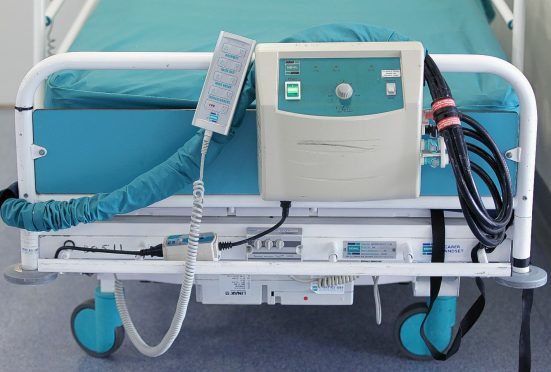A raft of new strategies will be undertaken to tackle bed blocking in north-east hospitals.
The Aberdeen Integration Joint Board committee of the Health and Social Care Partnership heard that while the figures for delayed discharge had decreased sharply since December 2015, the board shouldn’t expect such rapid progress in the future as historic staff shortages are tackled.
Yesterday, £726,000 of funding was approved for the radical hospital at home scheme which aims to use new technology to treat patients in their own homes so as to reduce numbers in wards and the emergency department – while also cutting the risk of infection.
Two properties in Aberdeen will also be utilised for a £47,000 scheme to house patients who would not require long term hospital care.
The houses will be located in separate parts of the city and will be used for between eight and twenty weeks by each patient.
Further plans are in place to provide new district nurse training with 48% in the profession in NHS Grampian approaching retirement.
In December 2015 it was reported around 100 patients suffered delays due to bed blocking which has been reduced to just below 60 this month.
A report to the committee read: “The intention is to ensure that those individuals who cannot safely and timeously return to their own homes, have an appropriate resource in which to wait, that is not a hospital bed.
“The Interim Housing properties are another component of a wider ‘spread’ of resources that already include interim care home beds.”
Committee member Sarah Duncan praised the health board for reducing the blockage but added: “There are still an awful lot of people in hospital who don’t need to be.
“But I think these stats are testimony to the hard work of the IJB.”
Alexander Burnett, Scottish Conservative MSP for Aberdeenshire West, said: “Bed blocking is a problem that has been particularly acute in the NHS Grampian area in recent years.
“This type of housing initiative should be broadly welcomed will help to ease the pressure.
“It is also welcome to see some improvement in the delayed discharge figures, but there is still a serious issue around the recruitment and retention of staff in the north-east area.”
